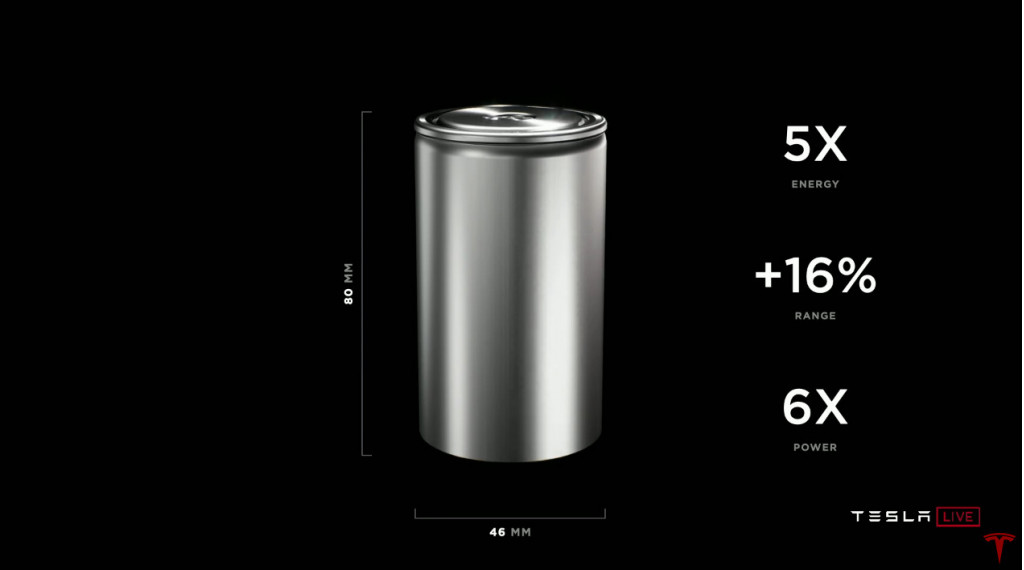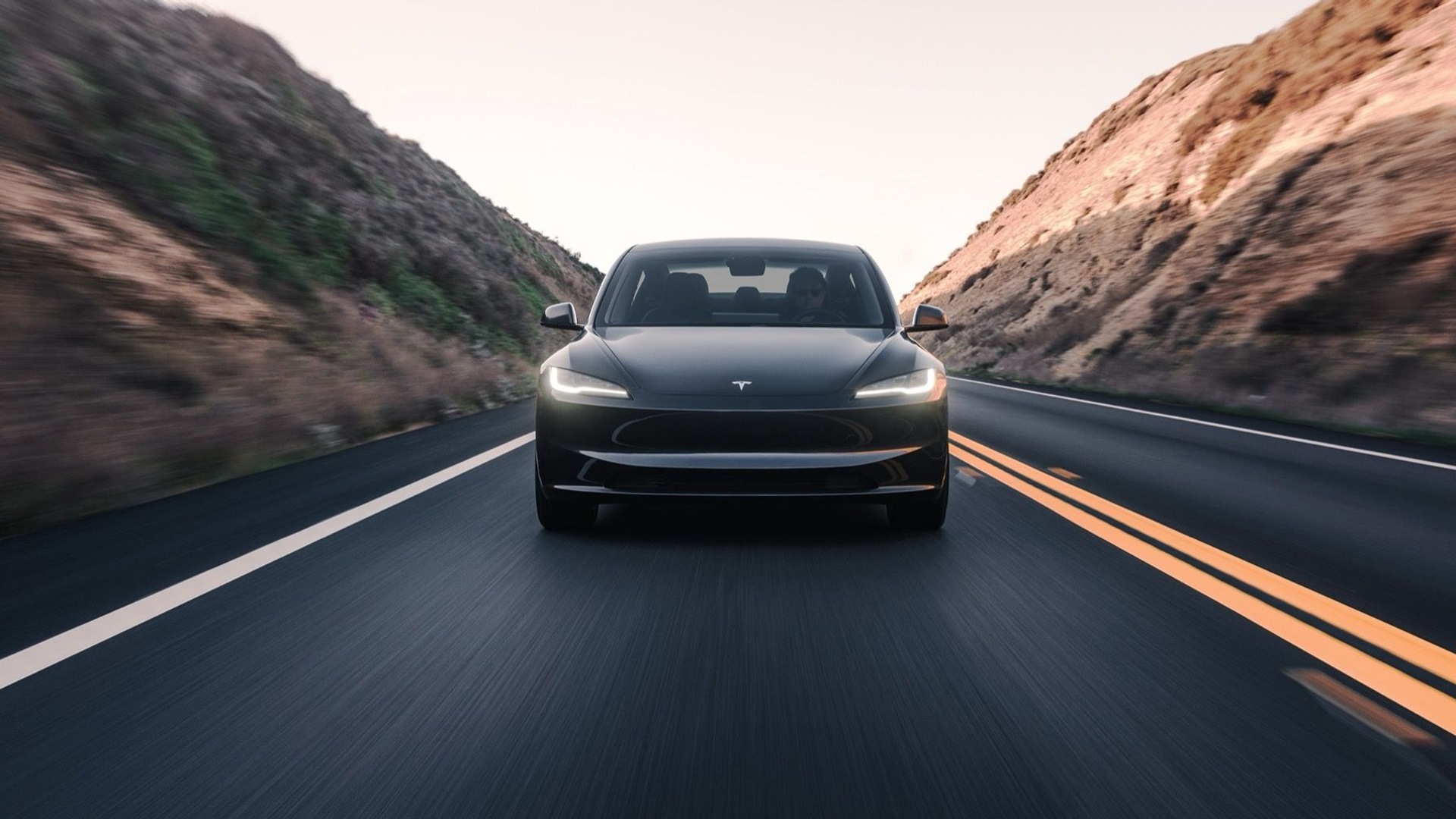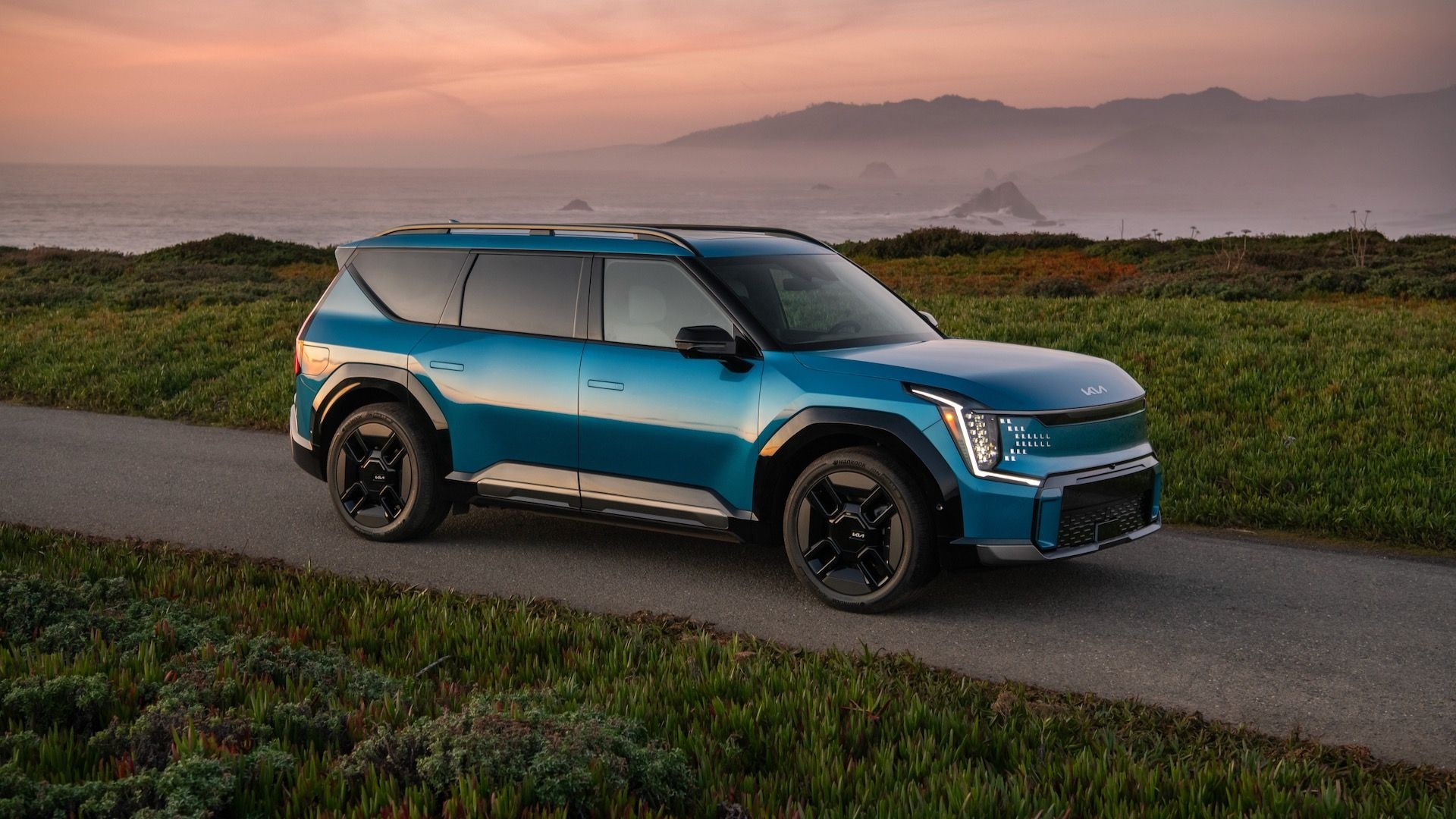Tesla produced its millionth large-format 4680 battery cell in January, according to a tweet from the company's official account posted Friday.
The 4680 cells, so far made at a facility in California, are key to Tesla's plans to continue boosting range and performance while lowering cost. The name references their dimensions—46 millimeters wide by 80 millimeters long. That makes them substantially larger than Tesla's current 2170 cells, which measure 21 millimeters wide and 70 millimeters long.
The first production vehicles to use the 4680 cells will be Model Y crossovers built at Tesla's new Texas factory.

Future Tesla cell will make energy, power gains
Tesla has said that the 4680 cells have about five times the energy of 2170 cells—which could lead to impressive gains in energy density, especially volumetric. The Model Y has 4,416 cells in the 2170 format used for vehicles currently being built at Tesla's Fremont, California, factory. So if Tesla sticks with the same capacity it will need well under 1,000 cells per vehicle. So one million 4680 cells is enough for more than 1,000 Model Ys.
Celebrating our one millionth 4680 cell in January pic.twitter.com/d19IPFu18u
— Tesla (@Tesla) February 18, 2022
However, one million is still a small fraction of what Tesla will need to shift all Model Y (and related Model 3) production to 4680 cells. Tesla delivered 296,850 Model 3 and Model Y EVs last year.
Panasonic is also reportedly readying to mass-produce the cell format for Tesla. The Japanese company has been Tesla's main supplier, although last year its EV battery boss expressed some skepticism about the new format in an interview, noting that cells could be more prone to particle contamination, which can lead to fires.
Tesla had said that the ramp-up of the new cell format would assure Semi deliveries by the end of 2021, but in January Tesla confirmed that it, the Cybertruck, and Roadster were all delayed to 2023.












